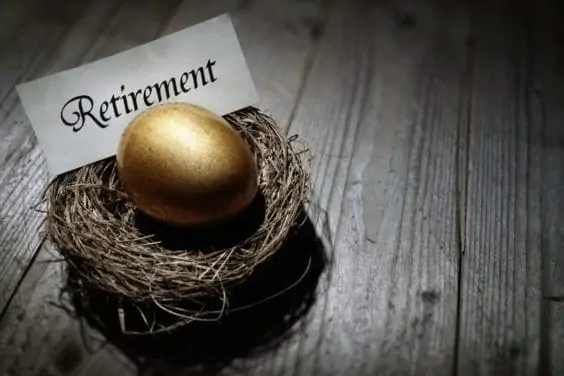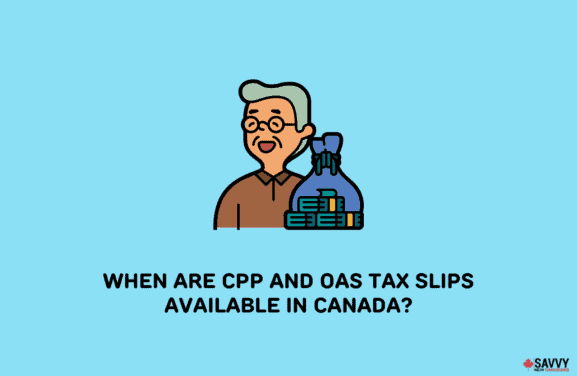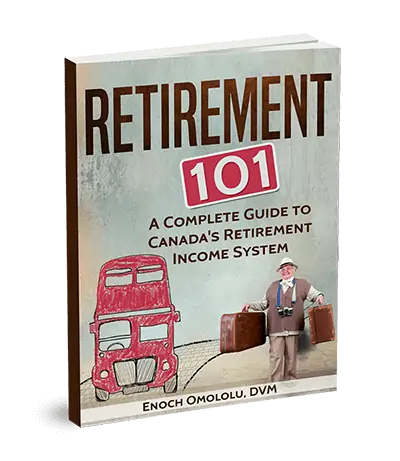Discussing pension payments after death and the benefits that survivors can expect is a morbid subject matter but a really important one. I know this because it is a question that readers often ask me.
What happens to OAS and CPP if you or your spouse dies? Do your benefits increase, decrease, or stay the same? Read on to find out.
CPP Survivor’s Pension
The Canada Pension Plan is a monthly benefit paid out to you when you retire. Eligible seniors qualify for a full CPP pension at age 65; however, you can choose to collect a reduced CPP as early as age 60 or defer it till later to qualify for an increase (till as late as age 70).
In Quebec, this retirement benefit is called the Quebec Pension Plan and is administered by Retraite Quebec.
Unlike the OAS, CPP is a contributory program, meaning you can only receive payments if you have worked in Canada and contributed to the plan. The amount you receive depends on how much you contributed and for how long.
When a spouse who was eligible for CPP payments dies, the surviving widow (or widower) is eligible to receive a survivor’s pension. The amount of CPP survivor’s pension you get depends on a few factors and tricky calculations that Service Canada uses depending on your situation.
To keep things simple, the three main factors that impact the survivor benefits you get are:
- Age of the surviving spouse (whether younger or older than 65).
- How much CPP benefits the deceased contributor was eligible for.
- If the survivor receives other CPP retirement benefits. Your combined survivor and retirement benefits are subject to a maximum threshold.
Age of Survivor
If you are 65 years or older, your survivor’s pension is 60% of your deceased spouse’s CPP pension, assuming they started collecting at age 65. If you are younger than 65 years, the benefit is 37.5% of your pension plus a flat rate benefit ($227.58 for 2024).
For 2024, the maximum CPP retirement benefit payable to an eligible beneficiary is $1,364.60. Using this information, it means that the maximum survivor’s pension for 2024 is:
Younger than 65: ($1,364.60 x 37.5%) + ($227.58 flat-rate benefit) = $739.31.
65 years and older: ($1,364.60 x 60%) = $818.76.
Receiving other CPP Benefits
If the survivor already receives a CPP retirement pension, their total monthly benefits cannot exceed the maximum monthly CPP pension entitlement threshold, which is $1,364.60 for 2024.
What this means is that if the couple were both getting the maximum CPP benefit, after the death of one spouse, the survivor would not receive any survivor’s pension as they are already getting the maximum benefits possible. This is somewhat punitive as it means the survivor, in this case, is not better off.
In a case where the survivor is getting less than the maximum CPP, they may qualify for a survivor’s pension that tops up their benefits up to a maximum of $1,364.60.
In reality, the survivor’s pension for most people is less than the maximum. As of 2024, most survivors younger than 65 are receiving $498.66 on average, while those that are 65 or older can expect an average payment of $315.77. Service Canada updates these rates every quarter here.
Other CPP benefits available to survivors include:
Children’s Benefit: This is a monthly payment made to the dependent children of a deceased CPP contributor. The children’s benefit is paid until the child (beneficiary) celebrates their 18th birthday… or 25th birthday if eligible due to full-time school or university attendance.
For 2024, the maximum children’s benefit is $281.72 per month.
Death Benefit: This is a one-time payment of $2,500 made to the estate of a deceased contributor.
Calculating how much survivor’s pension you qualify for can be challenging. Apply using form ISP1300 as soon as possible following the death of a partner and contact Service Canada at 1-800-277-9914.

Old Age Security Benefits for Survivors
The Old Age Security (OAS) is one of the main sources of income for seniors aged 65 and over in retirement.
It is a monthly benefit that is based on how long you have lived in Canada in your adult years. To qualify for the full OAS pension, you must have lived in Canada for at least 40 years after your 18th birthday.
Unlike the CPP, OAS payments do not transfer over to a surviving spouse. If the surviving spouse is also receiving OAS, that continues; however, the payments being made to the deceased spouse stop.
To minimize the impact of this loss of income on a survivor who is between ages 60 and 65, who is not yet eligible to collect OAS, and who qualifies as low-income, there is a widowed spouse’s allowance or allowance for the survivor benefit under the OAS.
The Allowance for the Survivor benefit is a maximum of $1,614.89 monthly for the January to March 2024 quarter. The amount you receive depends on your annual income and falls to zero when your income exceeds $29,112 in 2024. You can view the updated rate tables here.
Allowance for the survivor benefits stops when you become eligible for OAS at 65 or if you remarry, start living in a common-law relationship, or leave Canada for more than 6 months.
One disadvantage of the allowance for the survivor benefit is that the survivor must be at least 60 years old. If you are younger, you get nothing until you reach age 60.
How about other pension benefits?
Workplace pensions, such as defined benefit and defined contribution plans, may be treated differently after the pensioner dies, depending on how they set up their plan or if they signed a waiver of entitlement.
The surviving spouse may qualify for a survivor’s pension (with or without a reduction) and a one-time lump-sum death benefit.
There are various options for designating a beneficiary to your RRSP, RRIF, and TFSA funds. Read more about these options below:
- What happens to an RRSP, RRIF, or TFSA after death?
- How to designate a TFSA beneficiary
- Financial steps to take at age 65 and 71 in Canada
- Financial Checklist for New Canadians
Bonus: Investing Made Easy
Justwealth

Top-rated online wealth manager
Several customized portfolios & low fees
Unique RESP and other offerings
Auto rebalancing and div reinvesting
Earn up to a $500 bonus







Do I need to be in Canada six months every year to collect CPP and/or OAS? What happens if I want to travel for a couple years? Thanks!
@Randy: Check out this post:
https://www.savvynewcanadians.com/collecting-oas-cpp-pension-non-resident-retirement-abroad/
There are 600,000 seniors in Canada who depend on CPP, OAS, and GIS as their only source of income. And this leaves these seniors living below the poverty line. Both the Federal and provincial government NL know it, it is well documented in reports, but nothing is done to correct this situation.
Mary MARTIN, SUPPORT OUR SENIORS
PLEASE SEE OUR FACEBOOK PAGE.
There is typo on this page
To qualify for the full OAS pension, you must have lived in Canada for at least 40 years after your 18th birthday.
It should be at least 10 years not 40 years!!!!!
no way! Why do people always think they should get everything for nothing? How much do you think taxpayers should have to pay so you can have a free life. I think you should have had to be born in and worked in Canada!
I was married to my ex husband from 1972 until 1997. He remarried in 1998 but is now deceased. Would I be entitled to any of his CPP contributions for the years I was married to him?
Do you have articles on what happens when the contributor dies before 65y? I have recently come into a situation where I may have a terminal illness and would die at age 47. What if anything can my spouse expect to receive? (we have 2 kids: 4months and 3.5years) Thank you for the info.
@RR: Sorry to hear and my best wishes to you.
If you have contributed to the CPP, your spouse would likely qualify for the CPP survivor’s pension. The current maximum is $638.28 per month for spouses of deceased CPP contributors who were younger than 65. Children also qualify for the children’s benefit…currently $255.03 per month. Lastly, your estate will qualify for the $2,500 CPP death benefit.
My father is 59 and in palliative care. He has lived and worked his entire life in Canada. He is applying to start receiving his CPP when he turns 60, in 26 days. If he dies before then, will his surviving spouse, my mother, still be eligible for a survivors pension or just the death benefit?
If someone lied about their age and started working at age 14, would this trick the government into paying OAS at age 63? Or how would one collect OAS at that age?
My ex-spouse applied for and received over $130 of my CPP monthly. Does she receive the $130 before she receives her CPP or only when she is on CPP?
Question: What happens in the case where both spouses retire early, say 60, and thus receive less than $900 in CPP.. If one spouse passes away, does the other spouse not get the cpp credits, and thus will start receiving closer to the maximum (ie $1200)
My husband 64 started collecting CPP at 61 and collects about 900/ month
I plan to start at 62 so will get about the same
Thus neither of us are at full CPP
If one of us dies does the other get survivor benefit to bump it up to max CPP (around $1200.) I think\
Thanks